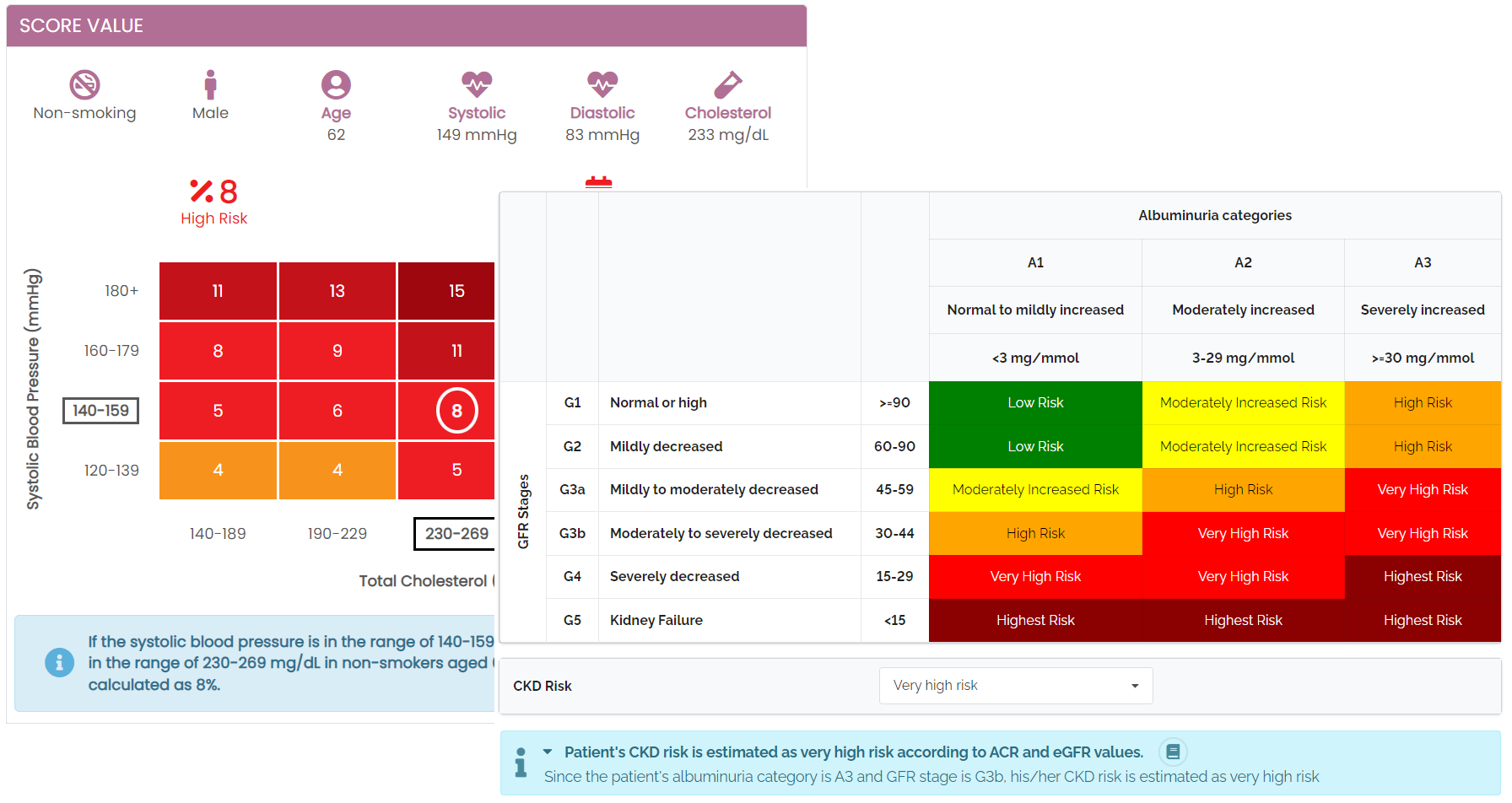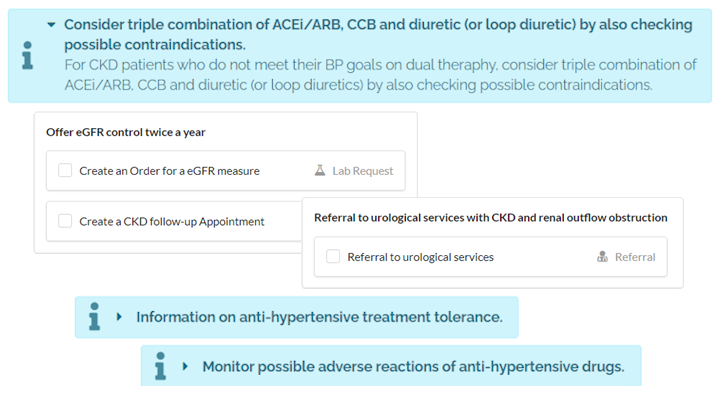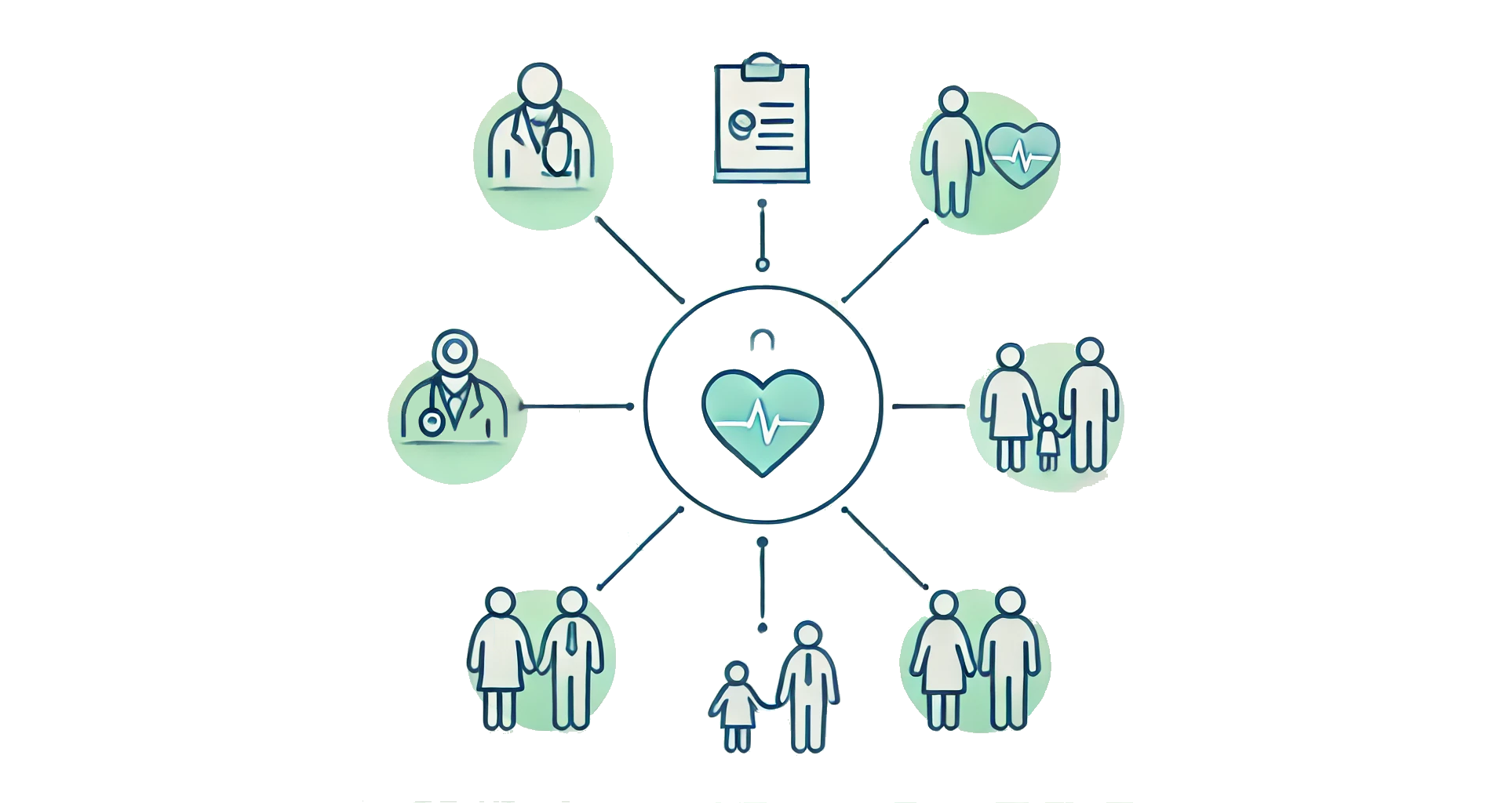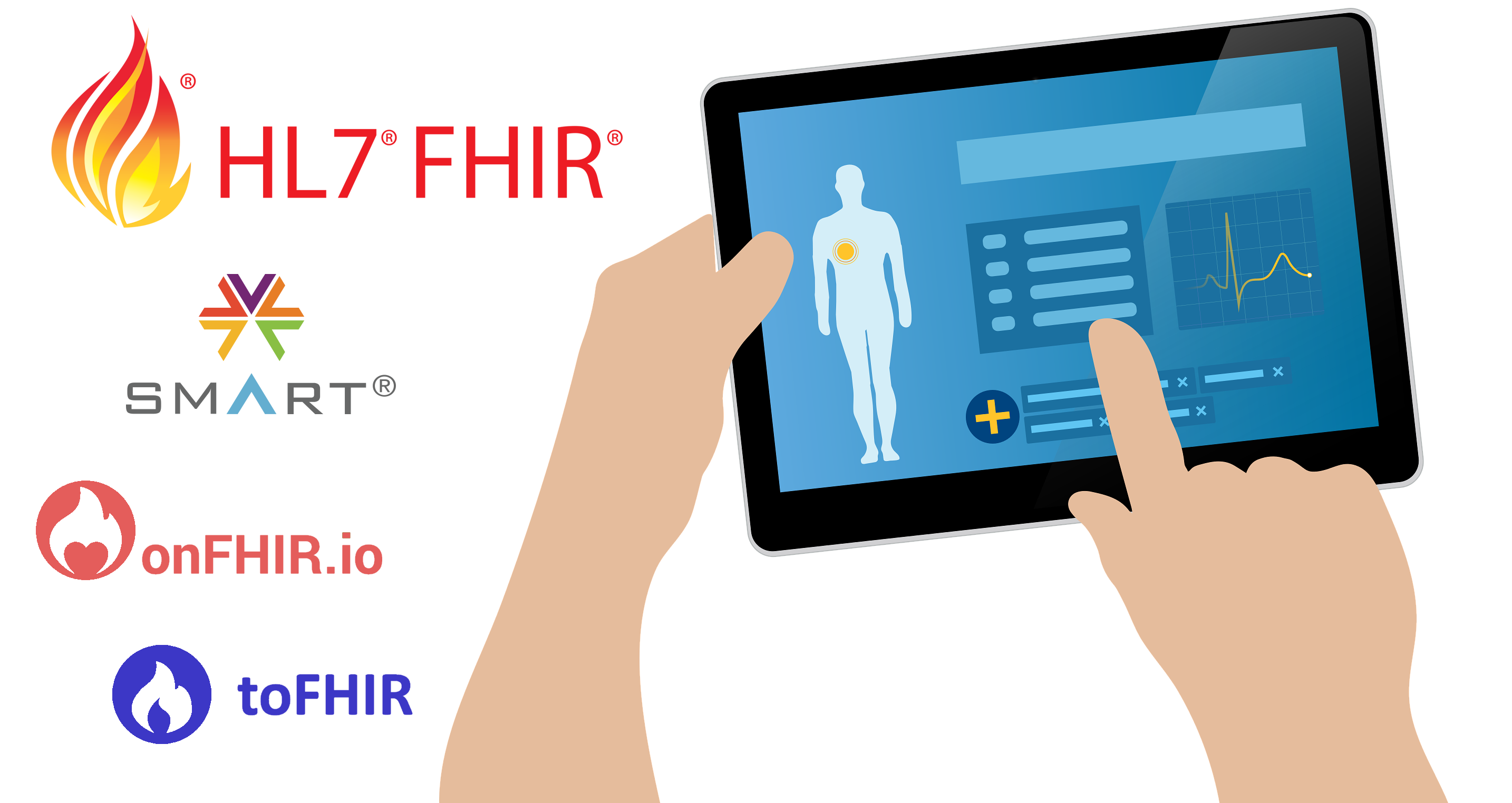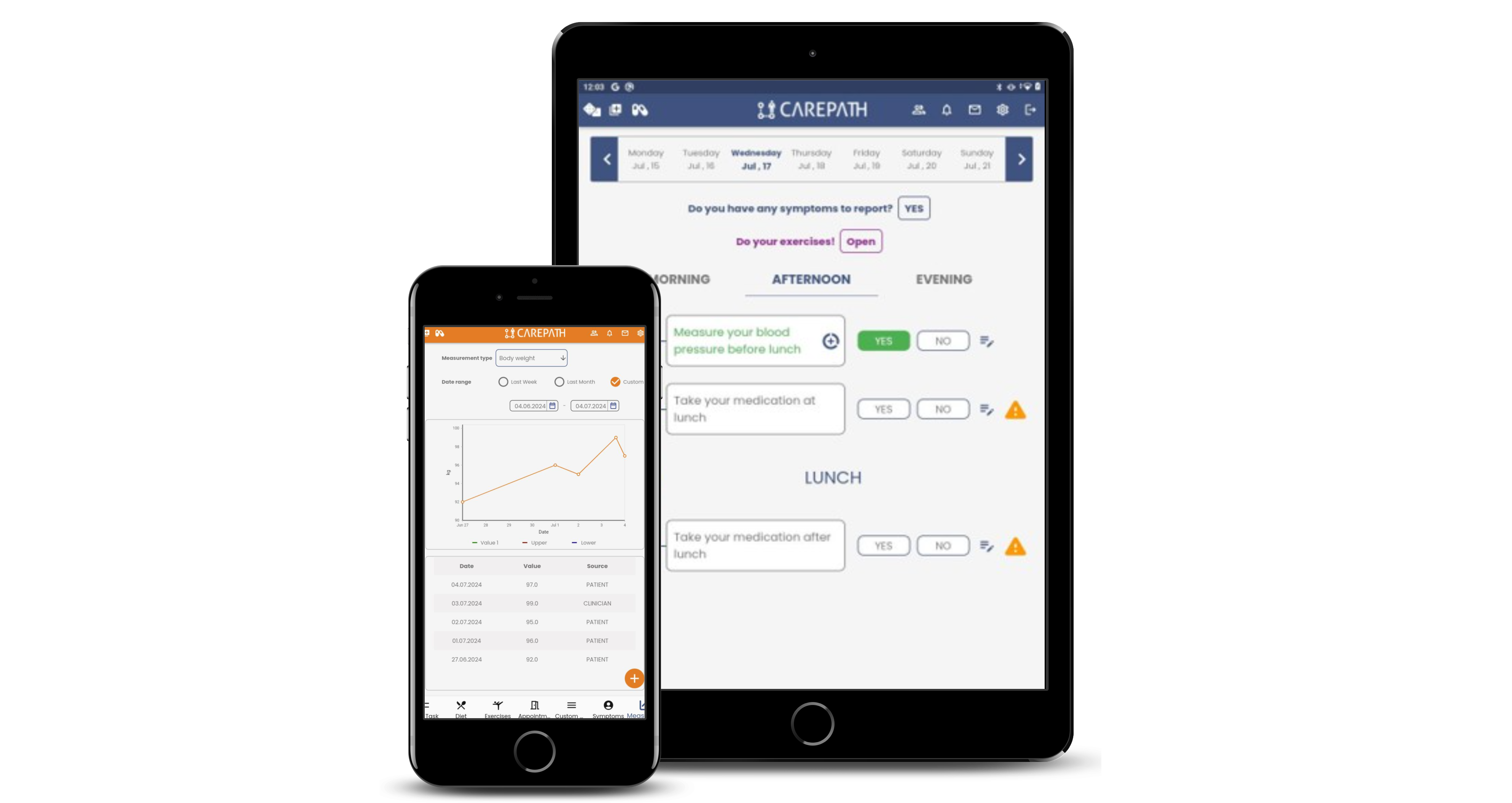Self-Management Support for Patients
Care Plan Access: The mobile KronIQ PEP app provides interfaces that clearly present daily and upcoming activities to patients in a categorized manner.
Patient Reported Outcome Measures (PROMs): To assess care delivery from the patient’s perspective and measure their perceptions of health status and quality of life, KronIQ lets healthcare professionals assign PROMs—such as EQ-5D-5L, CAT, and HADS—as part of their care plans. Patients can easily fill out these PROMs as questionnaires via KronIQ PEP.
Medical Device Integration: In KronIQ’s integrated care approach, patients can be asked to regularly report self-measurements of clinical parameters and vital signs as part of their care plan. The KronIQ PEP app supports Bluetooth Low Energy (BLE) to connect with BLE-enabled medical devices (e.g., blood pressure monitors, blood glucose monitors, pulse oximeters, and weight scales). The measurements are securely stored as HL7 FHIR resources on the integrated care platform and shared with healthcare professionals via the KronIQ Shared Care Planning interfaces.
Reminders and Motivational Interventions: KronIQ PEP supports patients in their self-management journey through Just-in-Time Adaptive Interventions (JTAI). JTAI is a design approach that provides the right type and amount of support at the right time, adapting to an individual's changing internal and contextual state. These interventions remind patients of their assigned activities and help motivate them to adhere to their care plans. KronIQ employs four key Behavior Change Techniques (BCTs): general reinforcement, positive self-comparison, positive comparison with other patients in the cohort, and simple reminders.
Shared Decision Making: KronIQ enhances patient and caregiver involvement in health management through shared decision-making (SDM), integrating patients' values and preferences into personalized treatment plans on the integrated care platform. It allows the use of decision aids within care plans, enabling patients to review options, weigh pros and cons, and align choices with their values. For example, when prescribing a COPD inhalation device, healthcare professionals can assign a decision aid to help patients choose the most suitable medication, guiding them to prioritize factors like minimizing medication frequency, reducing daily inhalation devices, and lowering costs.
Educational Materials: Healthcare professionals can assign educational materials, such as videos, PDFs, or links, to patients within their care plans. These materials are displayed in the PEP as care plan activities. PEP includes a categorized educational material catalogue that allows for easy navigation based on content type and topics. The catalogue also offers filtering options and search functionality, ensuring patients can quickly find the information they need.
Messaging with Healthcare Professionals: To facilitate direct communication between healthcare professionals and patients (or their informal caregivers), KronIQ includes an asynchronous messaging module. Through PEP, users can send messages to care team members or other practitioners to share information or ask questions. It is important to note that users are informed this module should not be used for emergencies, as healthcare professionals may not monitor messages in real-time.
